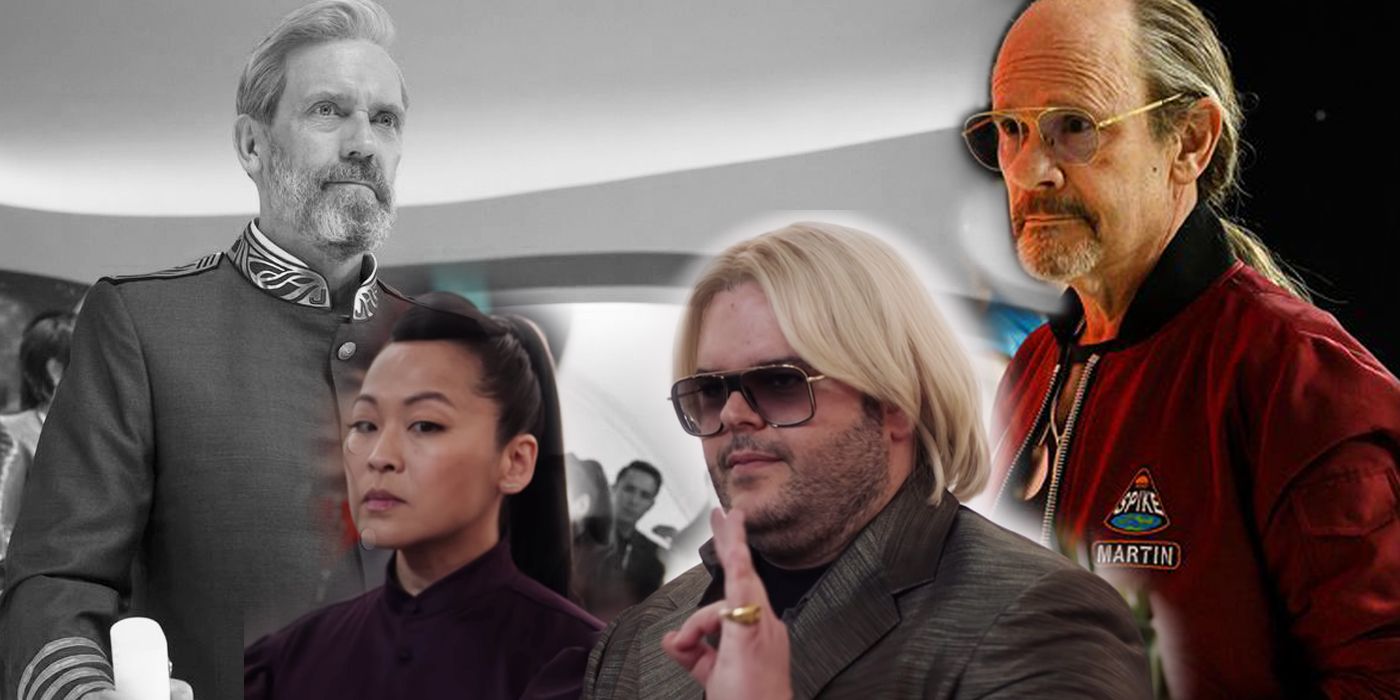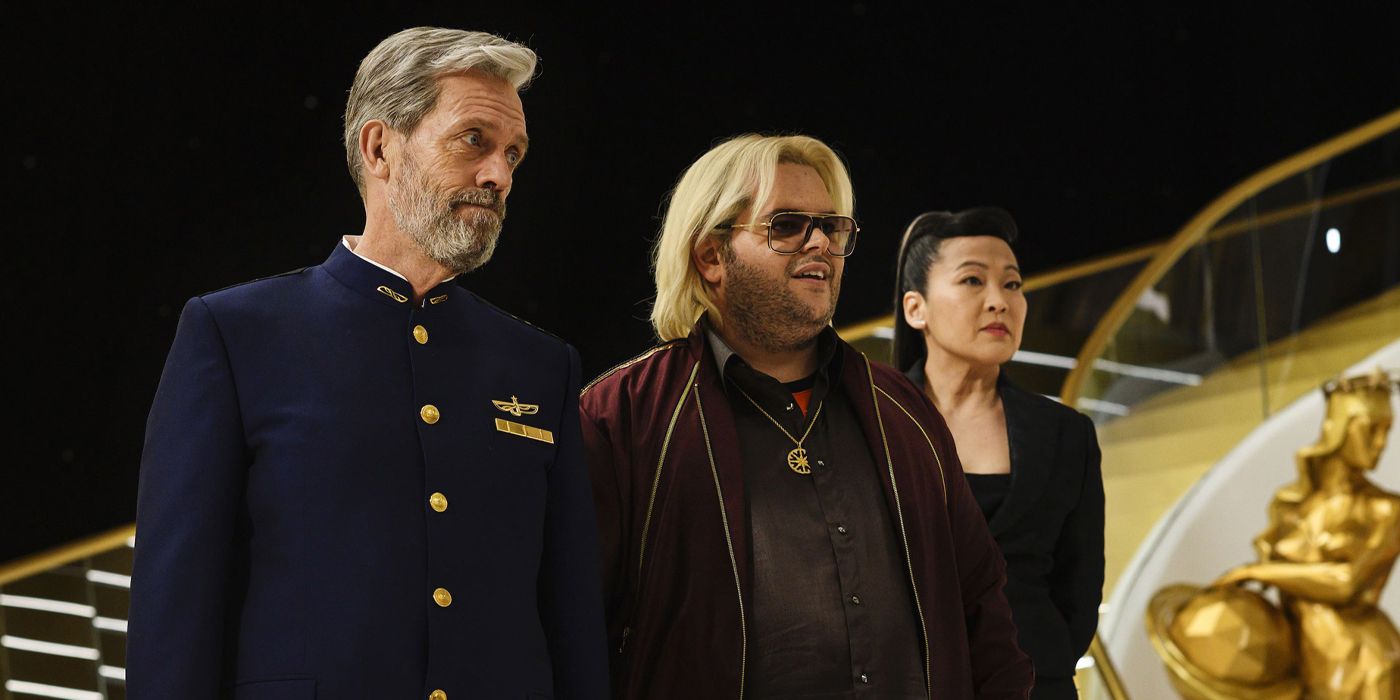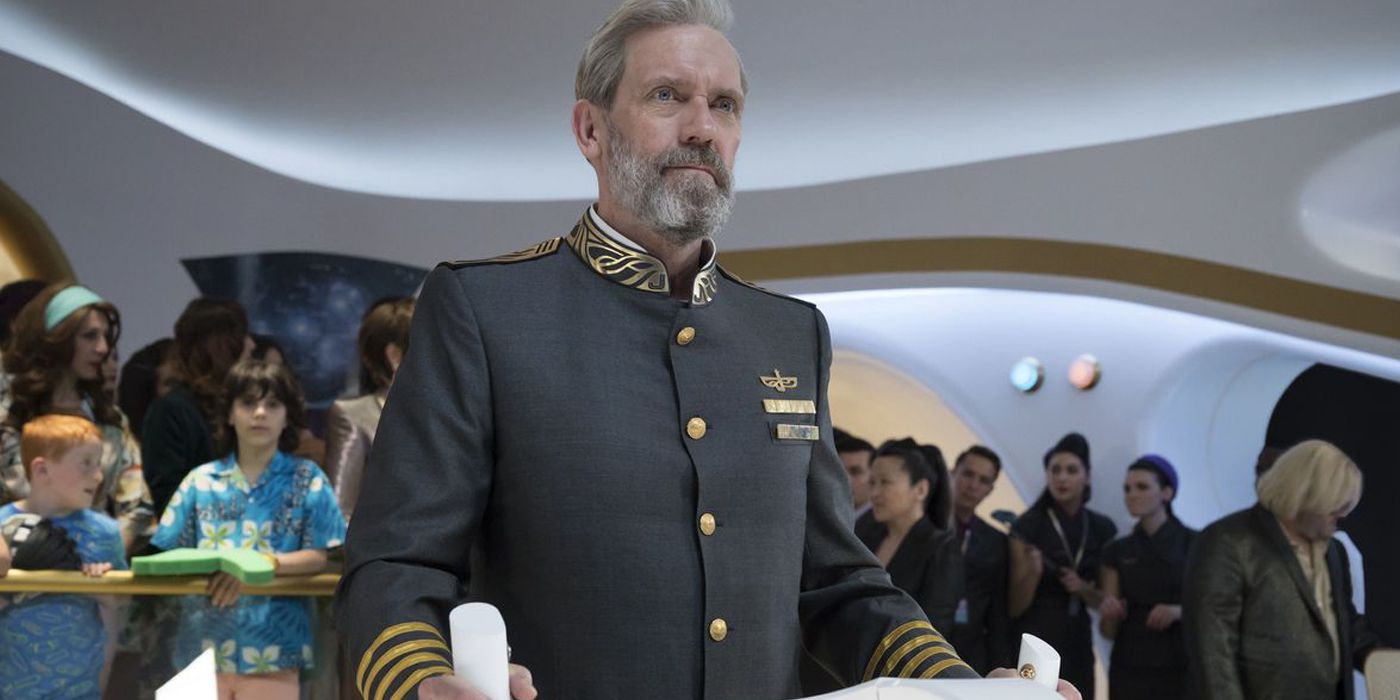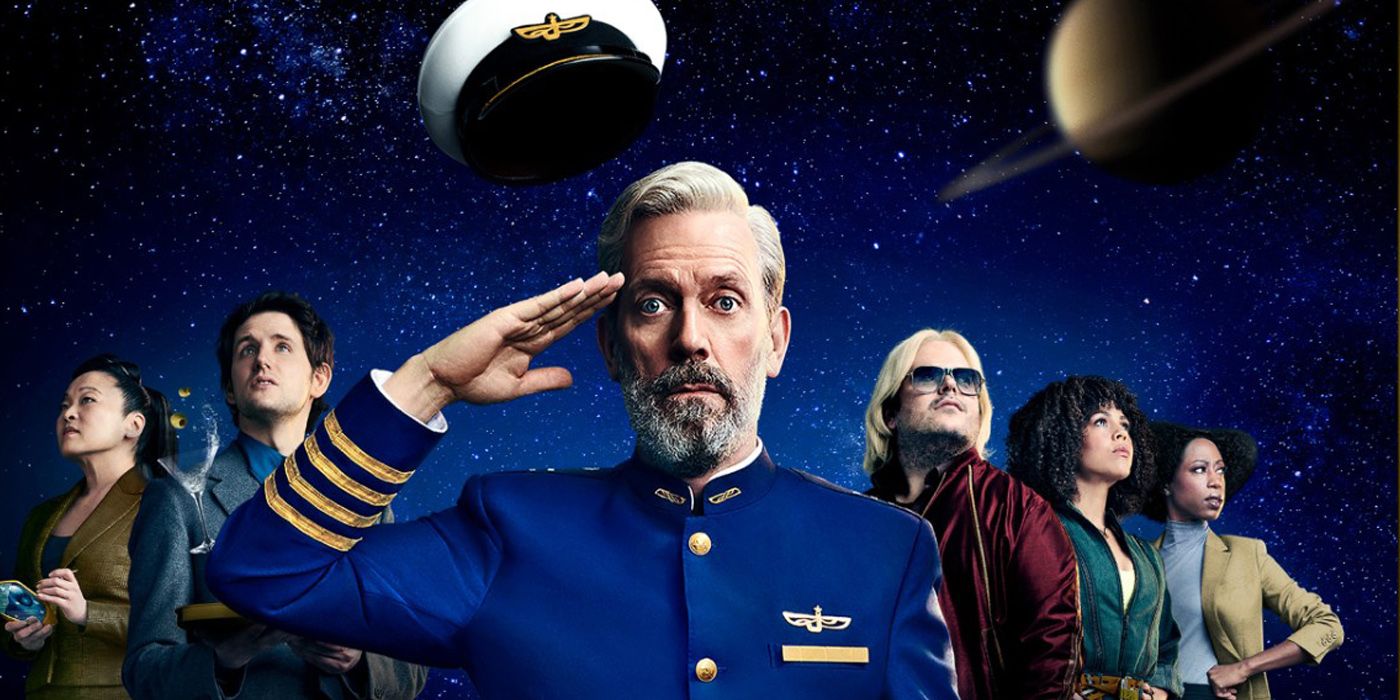
HBO's Avenue 5 is a sci-fi comedy based on the Avenue 5, an interplanetary cruise ship that gets knocked off course. The show's concept is a bit like The Love Boat set in space, but instead of charming characters and their romantic shenanigans, the characters on Avenue 5 are all blundering, deeply-flawed individuals who are constantly at each other's throats.
Avenue 5 was created by Armando Iannucci, the comedic mastermind behind HBO's critically-acclaimed satire series Veep. The Scottish-born writer and director has a reputation for delivering funny yet scathing ridicule on various topics, specializing in political satire. Like in his previous projects, Iannucci's Avenue 5 is as vicious as it is hillarious.
While Iannucci's previous HBO series fit comfortably in his wheelhouse, as the highly-quotable Veep skewered the American political system, this latest series turns Iannucci's critical gaze to a more broad review of contemporary Western society. Those approaching Avenue 5 without any foreknowledge of Iannucci's previous works may expect to find a straight-forward screwball comedy that follows the light-hearted adventures of space castaways, similar in tone to Gilligan's Island; however, there is a deeper meaning behind the antics of the Avenue 5 and the employees of the Judd Corporation, and there is a message buried in the show's farce.

Avenue 5's ensemble cast is filled with funny yet deeply-flawed characters, who each bring to the series a different aspect of contemporary culture that can be mocked. The most obvious example of this is Herman Judd (Josh Gad), the idiot billionaire who owns and runs the Avenue 5. Although he lacks any real skills or training, he drifts through the corridors of his massive spacecraft like a childish God, pointing his finger as he interferes with people's workdays and makes flippant commands. He is so boisterous and confident that he is completely unfazed by his own ignorance; in one instance, he orders his deputy Iris Kimura to change the restaurant's color to completely red in order to sell more steaks, waving his hand dismissively as he suggests "that's science, probably."
Judd is, of course, a scathing criticism of corporate culture, where people (the stereotype is white heterosexual men) are able to climb to the top of the corporate ladder without possessing any skill or expertise. In the worst situations, the high-ranking position of CEO is inherited, or at least partially due to nepotism; this is the suggestion for Judd in Avenue 5, who clearly owns a massive technology company yet possesses no technological knowledge whatsoever. For all his bravado, Judd is ultimately a buffoon.

One of Avenue 5's most obvious themes is the shallow nature of commercialism. Everything onboard the Avenue 5 is gaudy to the extreme. The ship is decorated with extravagant gold accents everywhere, from the Captain's brass buttons to the extravagant gold statues decorating the observation deck. As the saying goes, not all that glitters is gold, and the overall effect is that the Avenue 5 comes across as cheap rather than luxurious. This point is driven home when audiences meet passenger Karen Kelly for the first time, whose cabin also possesses an economical feel akin to Ikea furniture. Kelly's "cabin window" is a screen, and its "view" is stuck on the "heavy industrialization" setting: images of countless grey smokestacks.
Kelly herself, as well as the other passengers, contribute to the show's criticism of commercialism. Just as the cruise ship is not as luxurious as the Judd Corporation would have you believe, these passengers are not the paragons of humanity that one would hope future space-faring people would be. Unlike Star Trek, which presents an optimistic view of the future, Avenue 5 shows a not-too-distant future where everyday people are just as petty and flawed as they are now. Kelly is admirable for her strength of character and conviction, but she is also easily-mocked for her short-sightedness and busybody demeanor. Similarly, the fighting soon-to-be-divorced dysfunctional couple (played by Kyle Bornheimer and Jessica St. Clair) represent the worst kind of pair to be stranded with: highly-antagonistic, yet also deeply co-dependent, these two can't help themselves from breaking into loud public arguments over the most inane of circumstances.

Iannucci makes a broader argument with his satire in Avenue 5: everyone is an idiot. The HBO show is unafraid to poke fun at individuals from every walk of life. No character in this ensemble cast is safe from criticism. The second engineer Billie McEvoy (Lenora Crichlow) is clearly brilliant, but frustrating: she's beautiful, and she's confident; yet, she's also terrible with conflict, struggles in social situations, and is inadvertently responsible for the death of a friend and colleague in episode 1.
Similarly, the Head of Mission Control Rav Mulcair (Nikki Amuka-Bird) is another strong black female character, who obviously is competent and respected in her field — but for some reason, she is stuck doing Public Relations activities for the Judd corporation, such as leading a tour, all while struggling to also balance the strenuous and critical activities required of her position. Her character seethes with barely-constrained resentment as she tries to appease the desires of her incompetent boss Judd, all while also leading her team of scientists in front of a room full of civilian spectators. Viewers with any experience in middle-management will likely empathize with her position, yet it's hard to resist wondering why she'd remain in what is obviously a toxic work environment. Couldn't she get a job somewhere else?
HBO's Avenue 5 does not have a specific thesis in mind for its satire (as of yet); instead, the darkly-funny TV series takes a broad view of contemporary culture, and pokes fun at the ridiculous aspects of our corporate, highly-commercialized existence. Whether Iannucci's aiming his satirical wit at the ineptitude of many corporate leaders, the shallow nature of commercialism (especially in the tourism industry), or the frustrating experience of competent professionals trapped working for incompetent bosses, the results are the same: viewers can't help but relate, and that relatability is what makes the chaotic situations so entertaining to watch.
from ScreenRant - Feed https://ift.tt/36bXrkm


0 Comments